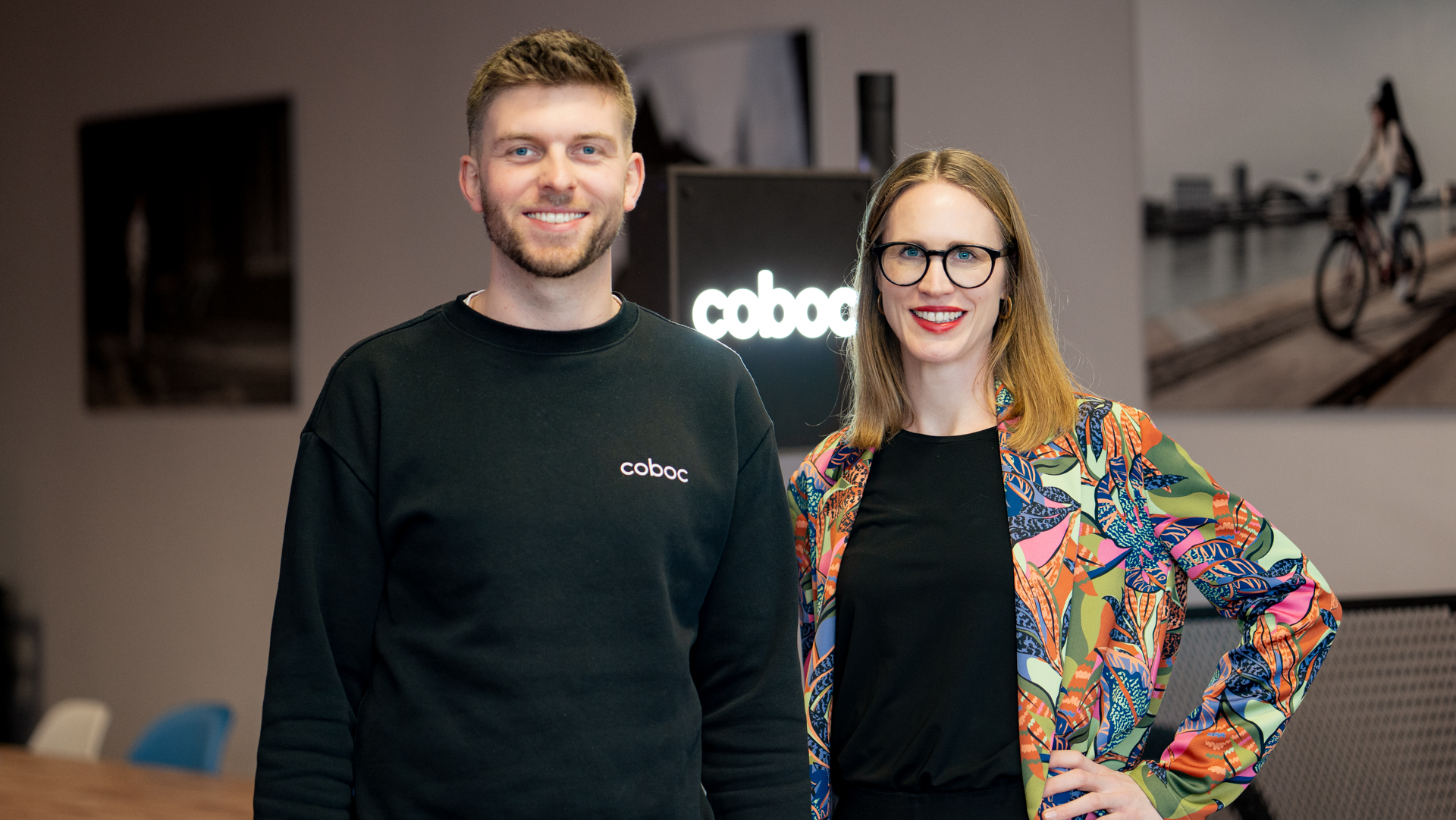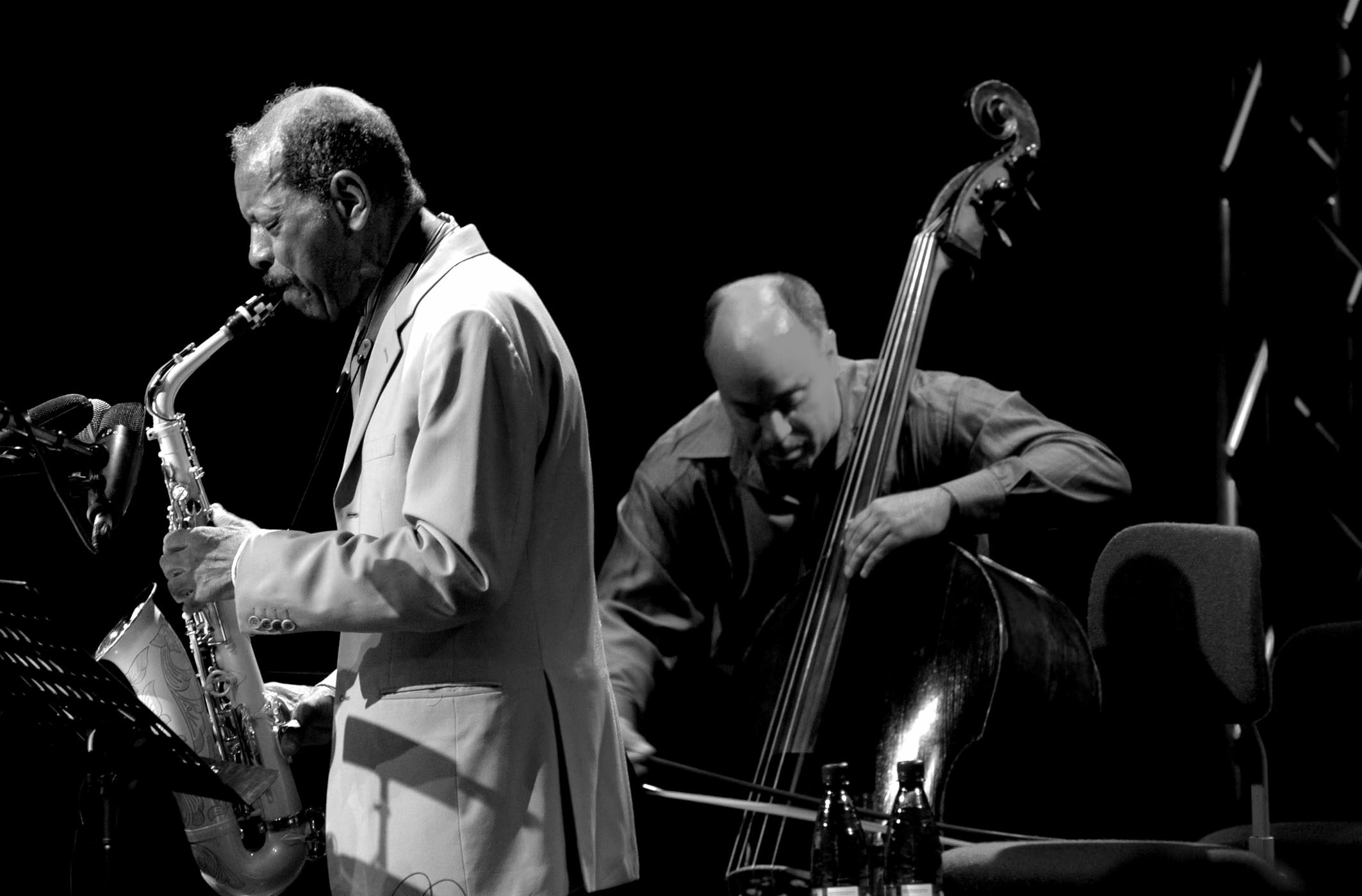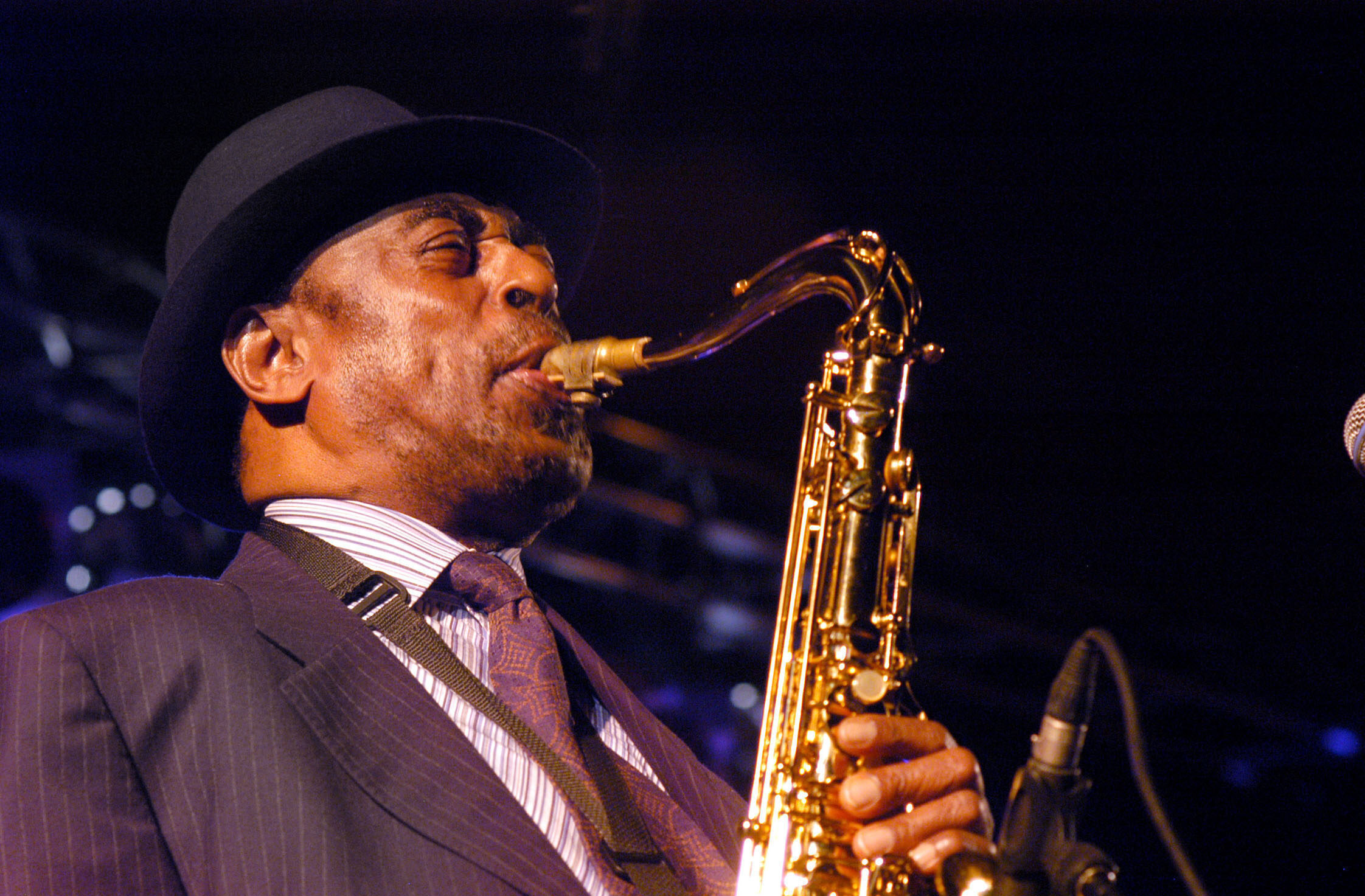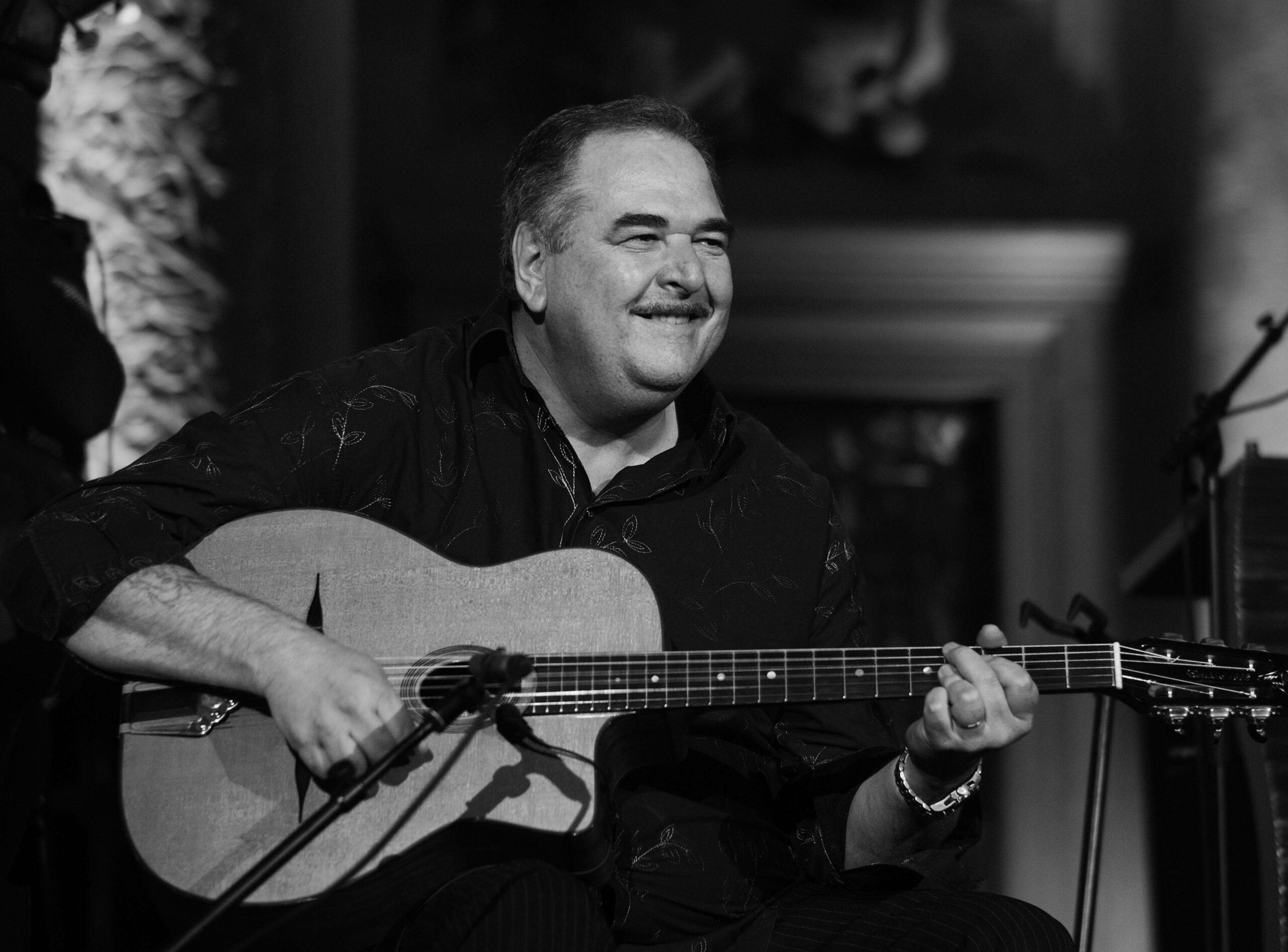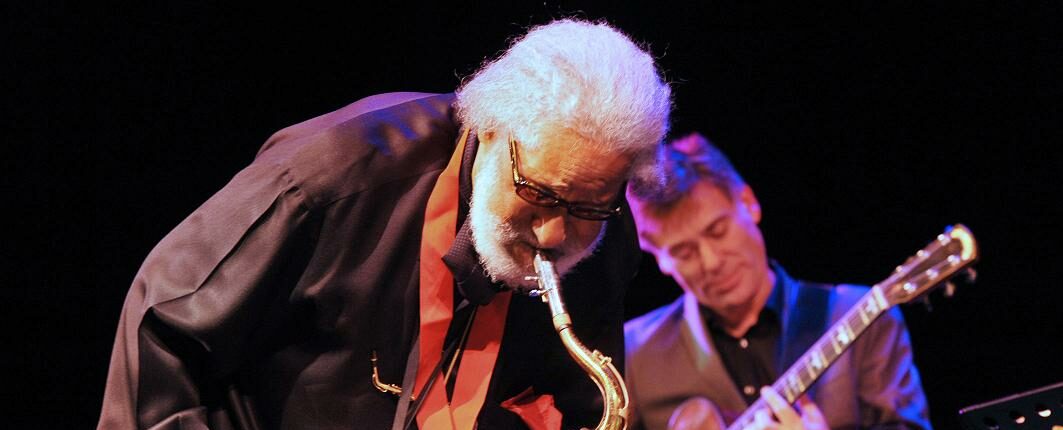Note: This interview originally took place in 2015 and is published here on the occasion of the 25th anniversary of Enjoy Jazz. The statements and references made in the interview refer to this date.
The situation could be straight out of a surreal movie: Branford Marsalis, multiple Grammy winner and eldest scion of the most influential contemporary jazz clan, is sitting backstage, completely relaxed and awaiting his interviewer with a glass of red wine. What else can he do: his tour schedule sends him from Hungary to Germany to Turkey and finally to Spain in the space of just four days. A Mozart opera is playing on the tablet PC at a considerable volume. It plays throughout the entire conversation and encourages the saxophonist to sing along again and again. You could call it multitasking - or you could say that this man needs a lot of parallel stimuli to be at his best. His razor-sharp mind is just as overwhelming as his friendliness. He asks a fan who has cheated his way through the labyrinth of the concert hall to the checkroom for an autograph to come back in twenty minutes. He should get his autograph. That's what you call relaxed. However, he was perhaps a little too relaxed for a short time during his first solo saxophone concert, now available on CD, in Grace Cathedral in San Francisco - which Duke Ellington played a decisive role in preserving in the 1960s. When Marsalis listened to the tapes of the recording, he asked the sound engineer to skip to "Body and soul". The saxophonist was both amused and astonished to discover that the piece did not exist. Instead, he had played Hoagy Carmichael's standard "Stardust" twice by mistake. He had immersed himself in a world in which the choice of piece became a minor matter.
Your family is something of a brand in today's jazz. Does that bring with it a special responsibility?
BM: With respect, I think that's complete nonsense. I hear that very often. If you ask me, it's unfounded. Of course Wynton has achieved a certain popularity and presence, for example through television appearances and successful big band projects. And I myself have certainly been seen in a whole range of different projects. But it's not as if we were constantly traveling the world to demonstrate our view of things or to convert others. You really can't not speak of a brand.
Nevertheless, you have influenced quite a few musicians.
BM: If that's the case, I take that as a great honor. But the only responsibility I feel, because you asked about it, is to be as musically honest as possible. It's always about musical sincerity. For me, entertainment doesn't mean hiding behind your humor or your intellect as if behind a mask, but on the contrary, going on stage and ripping that very mask off your face in front of everyone and exclaiming: Here I am! And that sometimes includes giving interviews that make people think: Why is he saying that now? Because that's exactly how I feel.
You have been involved in so many projects, is there such a thing as a personal interim balance?
BM: I got a very clear idea of what jazz should and shouldn't be. But that doesn't mean that I have no respect for musicians who see it differently. I have that. Because we're all fighting in the same arena. Unfortunately, that's not the case in all areas of life. For example, I miss that in politics. It should be possible among your peers to say: "Hey, you may be the worst politician of all time, but let's go for a beer." In any case, I respect every musician, no matter how famous or unknown they are, simply because they are in the same field as me. Respect should always be the least we can expect from each other.
They had many collaborations outside of jazz.
BM: Even if this sounds petty, I have never collaborated with anyone. For me, collaboration means a misunderstood kind of equality. I could list you many records with such collaborations, where one does what he is good at and the other does what he is good at, but they don't do one thing: communicate with each other, whereas I have always tried to take myself back in such projects and play the music as authentically as possible. I can't play what I play in a jazz solo when I'm playing with the Grateful Dead. play. It just doesn't work. There are bootlegs of the Grateful Dead with jazz musicians who play exactly what they always play - except that the effect is completely lost here. Wrong decision. When I play with Sting, I have to try to play the way his music sounds. When I play classical music, I have to choose a tone appropriate to that music. That's sometimes difficult, but very rewarding.
Improvisation is generally regarded as constitutive for jazz. Now you are quoted in the liner notes to the new CD as saying that people are not interested in solos at all, they are interested in the melody.
BM: I didn't express myself as diplomatically as it is written there. I actually said: people hate solos. But perhaps it really should be worded more carefully.
Could this be because you often have to listen to complex solos several times before you recognize the melodic quality or the storytelling in them?
BM: But every musical storytelling begins with the melody. That's the point. Just like a good story starts with a certain image or theme to attract attention. Everything else in the book is then based precisely on this theme. Even the most surprising twist can be traced back to it at the end. It's a myth that jazz is based on improvisation. The problem with jazz is that the training places so much emphasis on the harmonic and neglects the melodic. A solo that is not based on melody will never be able to tell an interesting story. be able to tell an interesting story.
This is more in the direction of musical mathematics...
BM: Do you know what such a non-melody-based solo is? A collection of technical data and information. We make everything far too complicated in jazz today. If I'm standing in front of a microwave and want to heat something up, I don't want to have to read a dissertation on the possible physical problems of microwave technology beforehand. That's just absurd. Microwaves work
Yes, it's very simple. Press the button and the food gets hot. That's all people need to know about microwaves. And it's no different in music. People have to be able to say: I like this song or I don't like it. If they have to know why they like it first, then they won't like it anyway. And that's exactly the problem with jazz today: as a listener, you first have to know why it's good.
But doesn't this realization frustrate her students?
BM: Some people certainly do. They then really struggle with themselves. But there's nothing I can do about that. They have to get through it. What I offer them as a way out is to remember the solos of the 1940s, which were always based on melody. That was the success of Charlie Parker's solos. And basically: improvisation already existed in the Baroque era. Take a look at what a harpsichord player does in a baroque orchestra. He only works with a lead sheet. I was on the road with a baroque ensemble and I tell you, I have rarely learned more about music and improvisation in such a short time. What makes jazz so unique has nothing to do with improvisation, it's the consistent use of blue notes and the swing beat. And contemporary jazz generally doesn't use any of these elements. And if you still want to know why it is not successful, then my answer is: precisely because of that.
How do you see your role against this background?
BM: Through my work at the school, which is more socially motivated, but also through my concerts and records, I am trying to help build up a genuine, historically aware jazz clientele. You hear so much today about how jazz can only be saved through innovation. But I just want people to come to my concerts and listen to jazz.
Sonny Rollins recently told me that jazz can't be anything other than political.
BM: I don't believe that music can be political. I remember these arguments very well from the Amnesty International tours with Sting and Peter Gabriel in 1988, but I do believe that a musician can and perhaps even should be political. But jazz musicians today are incredibly apolitical. The question of politicization came up a lot in the 1960s, when Roger Daltrey sang "We can change the world", for example. But in reality, we just make music. You can't change the world with that. A song will never trump a weapon. Music will never create a revolution. Hunger, oppression, yes, but not a song. It may be elevated to the anthem of a movement as background music, but it only reflects the real reasons that trigger action. And because you mentioned Sonny. He is exactly what I understand a political musician or person to be. And of course you can hear that in his music. But that was already the case with Beethoven. It will always be passion that drives good music. Many jazz musicians prefer to be mental geniuses and forget the emotional side. That's why their music doesn't reflect anything political, but is simply highly intellectual. And that's not the kind of music I prefer. so I agree with Sonny in that music should be political, but that doesn't work if the musicians are rather apolitical. by political music, I don't mean that it's no longer attractive to people who disagree with me politically. I mean that music today should still stand for something other than theoretical and technical brilliance.
And what could that be?
BM: Passion, feelings, humanity - not just dry information based on a mathematical system that is as perfectly thought out as possible.
You have just played and published your first solo saxophone concert. How did you prepare for it?
BM: Yes, that's right. It was my first solo concert. And the preparation was of course very different to what it would have been ten years ago, because my whole vocabulary has become much better. I listened to some solo recordings, especially those by Sonny Rollins. You run the risk of getting into a kind of repetition loop when you play solo. And I personally find that boring.
You have been playing together with your current quartet for many years. What makes this quartet special for you?
BM: Quite simply the common goal of making a song sound as good as possible. We don't use songs as a vehicle to make the bass or saxophone sound particularly good, for example. You can only move an audience if the song itself sounds good in its entirety. I've often heard jazz musicians in particular describe songs as vehicles - I don't know what for; maybe for a solo. But a song should never be a vehicle. A song is a song, and nothing else.
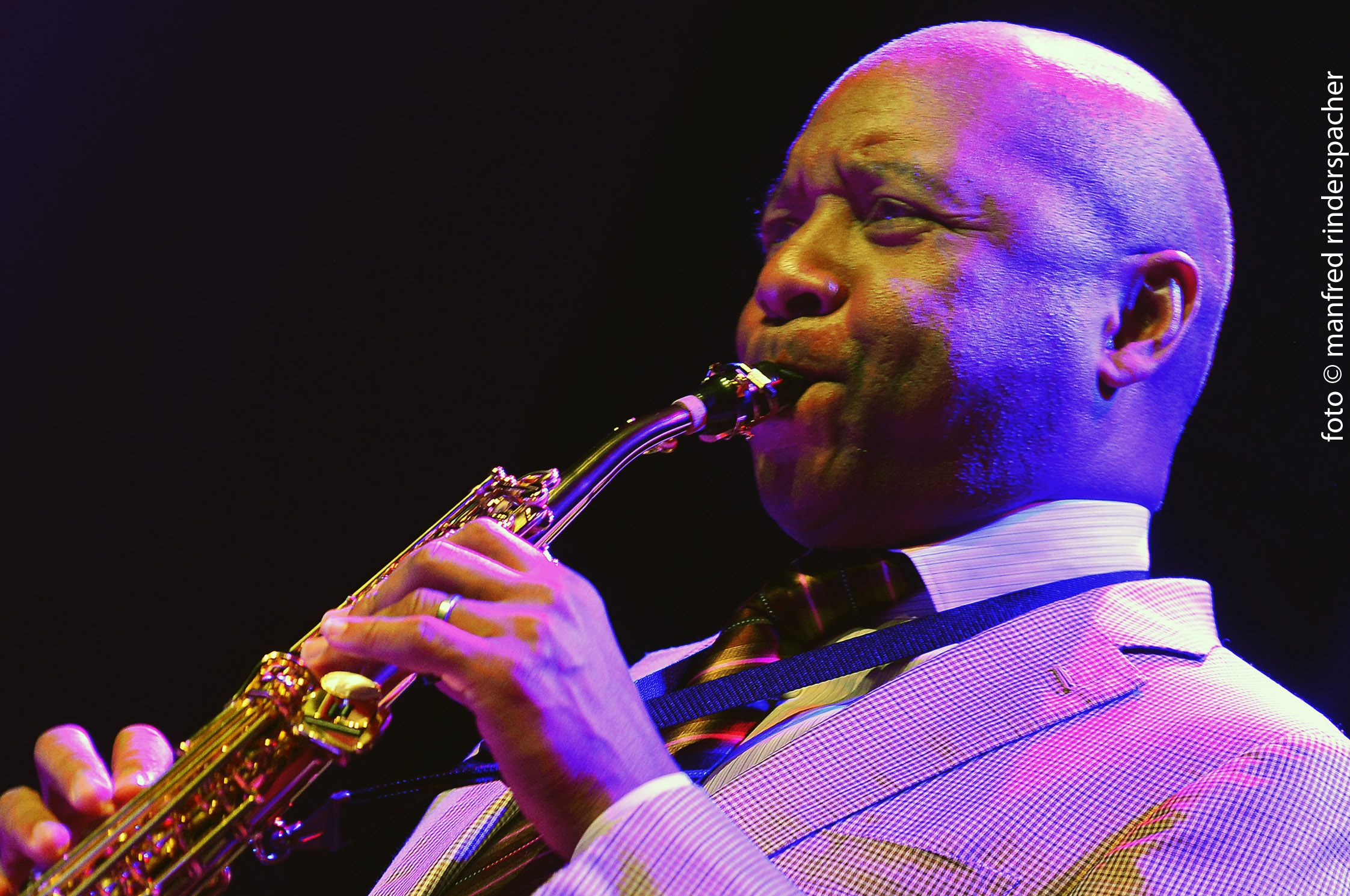
Date: november 28, 2023

